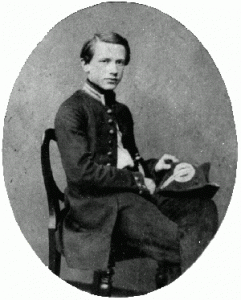 “Minors of the Majors” invites you to discover compositions by the great classical composers that for one reason or another have not reached the musical mainstream. Please enjoy, and keep listening!
“Minors of the Majors” invites you to discover compositions by the great classical composers that for one reason or another have not reached the musical mainstream. Please enjoy, and keep listening!
Within Pytor Ilyich Tchaikovsky’s (1840-1893) considerable musical oeuvre, we surprisingly find very few chamber music compositions. Trained within a Conservatory tradition that emphasized Western compositional techniques and expressions, we would certainly expect to find a multitude of intimate works for small ensembles. However, his chamber output is limited to three string quartets, a string sextet, a single piano trio and three works for Violin and Piano.
These compositions have received almost unanimous praise from the listening public; however, music critics and composers callously suggest that Tchaikovsky was merely a “symphonist who produced chamber music by paring things down rather than creating within the form.” Tchaikovsky’s second String Quartet, dating from 1874, emerges from a period in his life that saw the composer borrow musical forms and gestures of the past. Specifically, this quartet discloses a strong reliance on the musical language of Robert Schumann.
The first movement opens with a slow contrapuntal introduction full of delicious dissonance. An animated violin passage connects to the “Moderato” and to a pensive and melancholy tune. The halting accompaniment in turn, eventually gives rise to an animated offbeat melody, which nervously intensifies and develops. In the “Scherzo” Tchaikovsky combines musical gestures taken from the ballrooms of Russian aristocracy with the modal inflections and irregular phrase rhythms of peasant dance. The “Andante” features what Harold Schonberg aptly described as “music touched by neuroticism, as emotional as a scream from a window on a dark night.” In the “Finale” rhythm and meter become the main expressive agent. Tuneful melancholy and a breathless fugue—all terminating with a forceful and gasping restatement—only momentarily interrupt this relentless metric drive.
Pyotr Ilyich Tchaikovsky: String Quartet No. 2, Op. 22
You May Also Like
- Minors of the Majors
Edward Elgar: Piano Quintet in A minor, Op. 84 Born in a small village near Worcester, Edward Elgar (1857-1934) initially earned his living by working in the office of a local solicitor. - Minors of the Majors
Francis Poulenc: Sonata for Trumpet, Horn and Trombone, Op.33 Jean Cocteau magnanimously announced in 1918, that his principal goal was the elimination of all foreign and specifically German elements from French music and culture. - Minors of the Majors
Franz Liszt: Cantantibus organis The 1860’s were not particularly kind to Franz Liszt. For one, the Tsar of Russia successfully blocked his long-awaited marriage to the Princess Carolyne Sayn-Wittgenstein. - Minors of the Majors
Gustav Mahler: Piano Quartet in A Minor Gustav Mahler, son of an aspiring tavern proprietor and a soap-maker’s daughter, was considered a Wunderkind!
More Anecdotes
- Bach Babies in Music
Regina Susanna Bach (1742-1809) Learn about Bach's youngest surviving child - Bach Babies in Music
Johanna Carolina Bach (1737-81) Discover how family and crisis intersected in Bach's world - Bach Babies in Music
Johann Christian Bach (1735-1782) From Soho to the royal court: Johann Christian Bach's London success story - A Tour of Boston, 1924
Vernon Duke’s Homage to Boston Listen to pianist Scott Dunn bring this musical postcard to life
